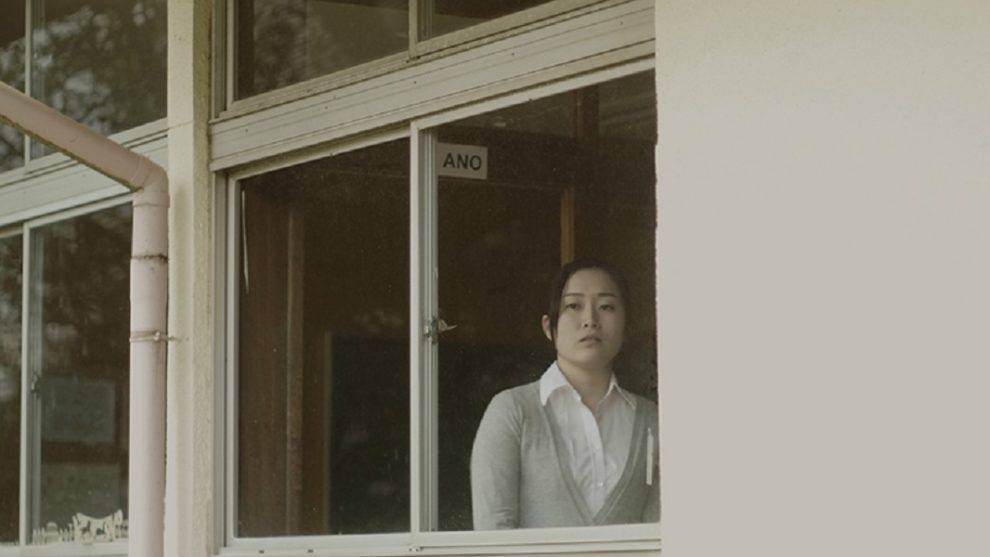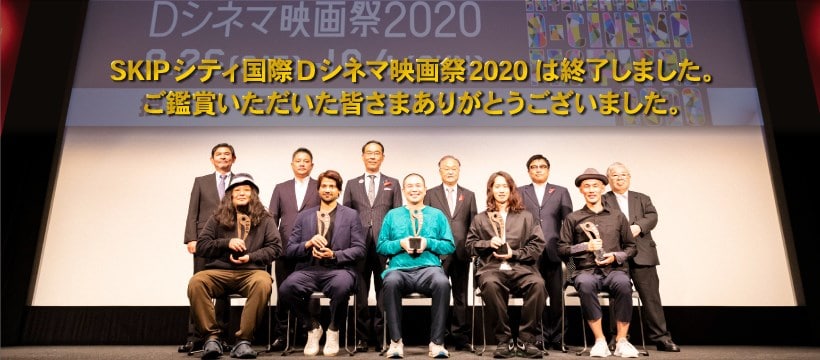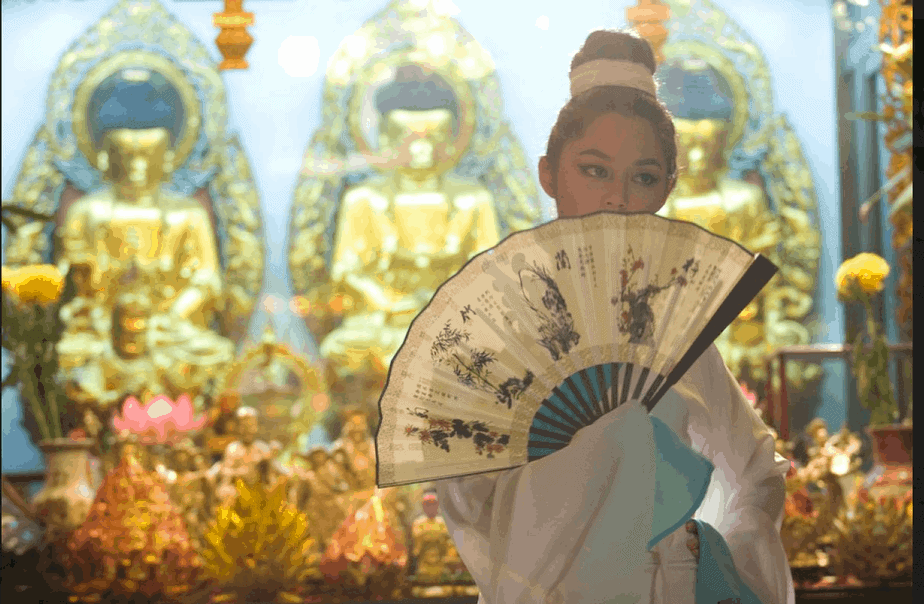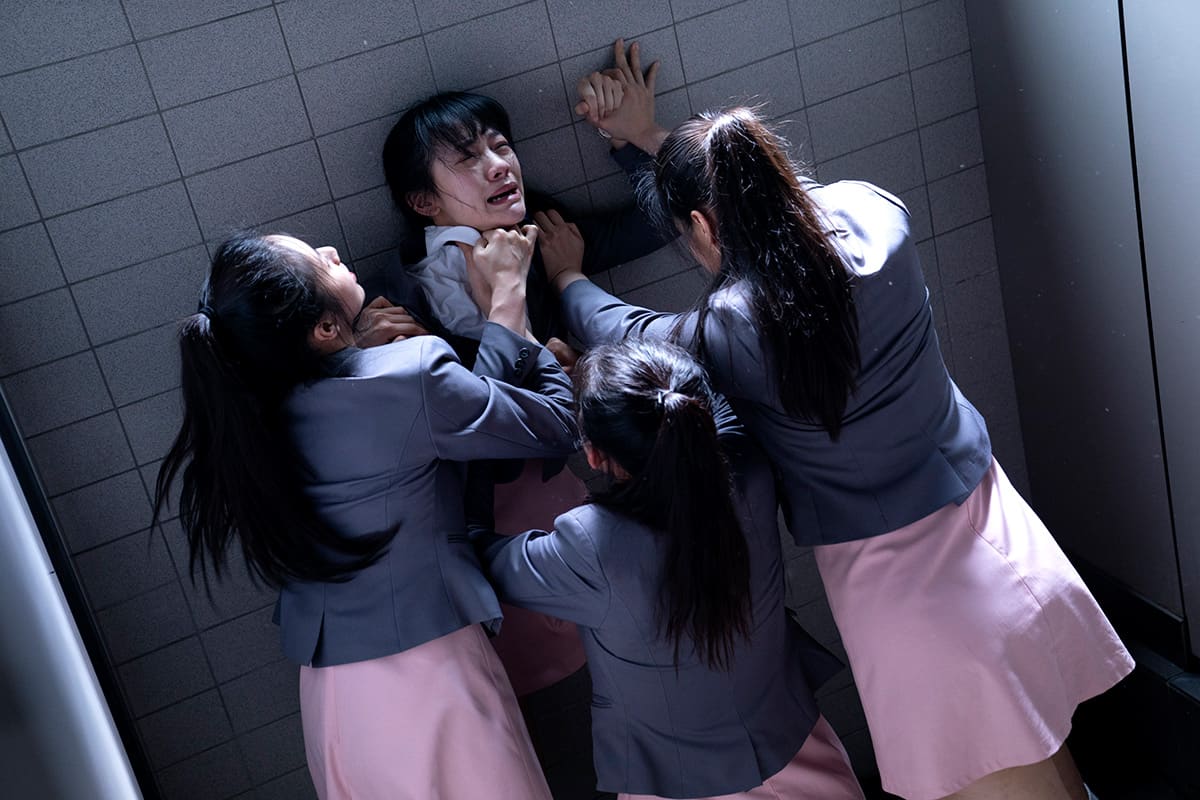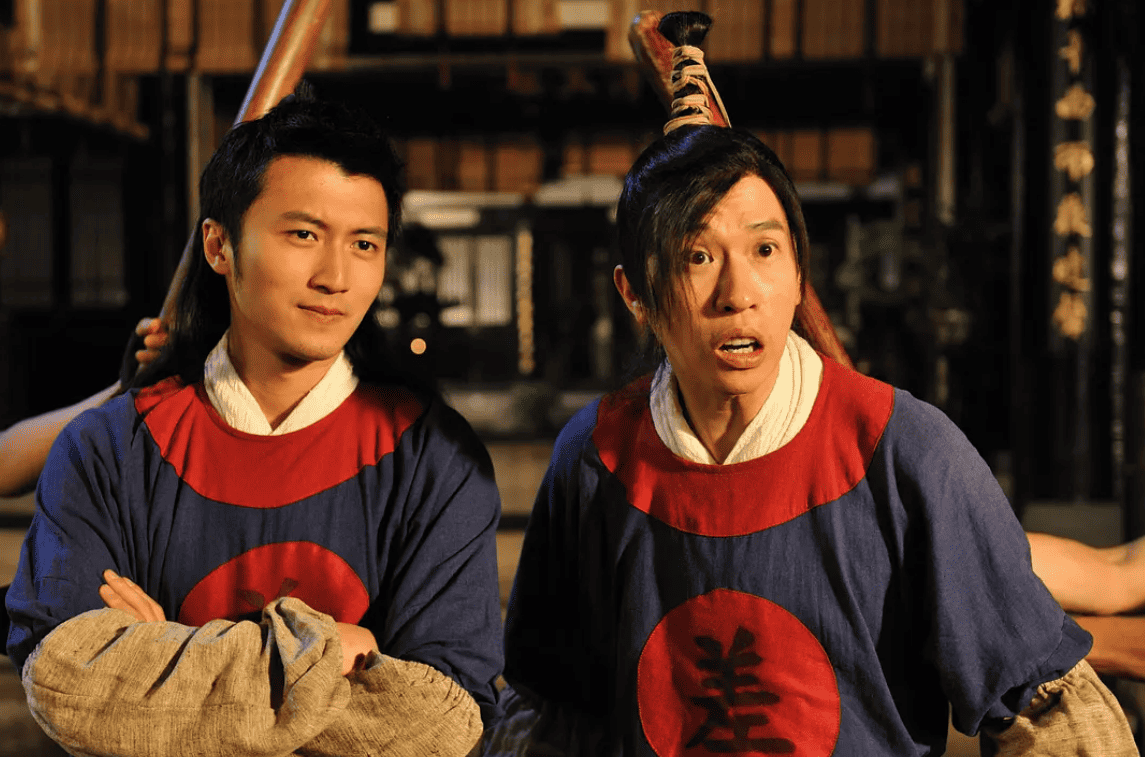The recent Nike campaign in Japan caused, as expected, quite the response, though for various different reasons. Some were upset by the accusations of Japan as a country where racism is present – no one likes such an accusation pointed their way – while others felt it a bit rich that an American company could throw any such accusations anyone's way at this time. But some felt that, with Japan being a fairly homogenous society, racism wasn't a particularly prevalent problem to be a point of focus. It is this last point that is the focus of director Park Jengil's short about a cultural exchange between two schools: one Japanese; one Japanese-Brazilian. In a short timeframe, Park is able to convey notions of naivety, blindness and misconceptions, alongside empathy and a willingness to understand in a well-balanced piece.
Kanamoto (Chong Sun-yong) is the head of the student exchange programme at the school where she teaches. The problem is that there are only 2 students in the group: Yuriko and Kaoru. With an upcoming exchange with a Japanese-Brazilian school coming up, Kanamoto invites Numata along to stimulate conversation, believing him to be the life-and-soul of the party, when Japanese tend to be rather ‘shy.' Living in rural Ibaraki, however, the trio of students weren't even aware that there were any Brazilians in the area, let alone enough to populate a school.
While the Japanese are largely ignorant, but willing, the Japanese-Brazilians they are to meet are less than enthusiastic. With a history of bad experiences, the students feel forced into the meeting, wanting – and expecting – nothing from the Japanese they are to meet. The exchange starts as expected: the Japanese unsure what to say; the Japanese-Brazilians unwilling to participate. It starts awkward and becomes heated, but the boiling-over of emotion breaks the ice. When this happens, they can see that a very complex problem can be dealt with very simple solutions.
With a short runtime to work within, Park is quick to set the scene and the problems at hand, switching between the two groups as they prepare for the ‘exchange.' The Japanese talk about which nationalities they find attractive and how they didn't know there were many Brazilians in the area. The Japanese-Brazilian school, however, are worked up and almost offended by the idea. After years of being subjected to discrimination, they don't want to sit and talk with the Japanese.
With an improvised feel, the camera plays its role as if a documentary, watching in on the group. The host school students share their experiences out of frustration at being forced into this situation. Their frustrations are furthered when Kanamoto talks slowly in Japanese to them. While they choose to speak mainly in Portuguese and English, they speak Japanese fluently, many having been born in Japan.
But Park uses Kanamoto cleverly throughout. It's clear she wants more than just a bland exchange between schools. With accusations thrown her way, she reveals personal experiences her Japanese students were not aware of, but while her Korean ancestry provokes some sympathy, livewire in the group Debora (Debora Barbosa Eguchi) states how she is still able to blend into Japanese society by having a ‘false name and face.'
The minority students are very much unseen in the government's eyes. The better researched Yuriko mentions how Brazilian schools are private and not officially recognised. These students will leave school with no officially recognised qualifications, going out into a world that will discriminate against them.
But, when the pressure is off, the students realise that the simplest things can connect them. The ‘shy' Japanese girls reveal trivial and banal facts about themselves to try and end an awkward silence. For once, a Japanese has spoken to them on an equal level. Like with most things, talking can make things a lot better, and far more relaxed.
Using this short exemplar, Park is adept at getting his point across in just a few moments. He paces “Muito Prazer” well and allows the audience to share in the emotional experience of the cast. Whatever reaction to the Nike commercial may be – and how widespread the problems may be – talking about it is better than letting it go unseen.


